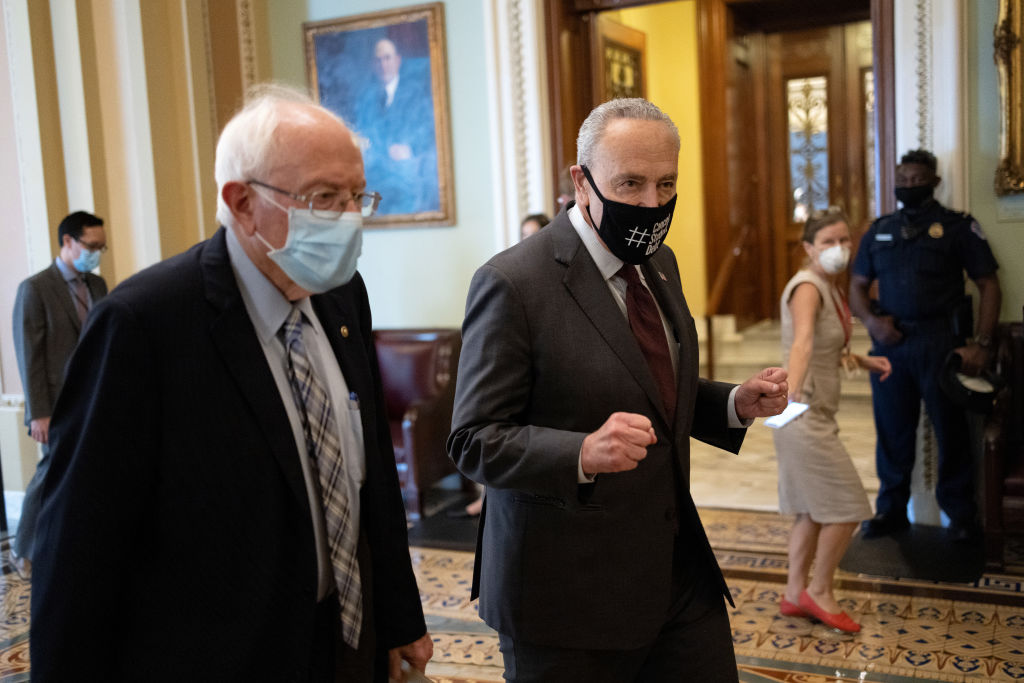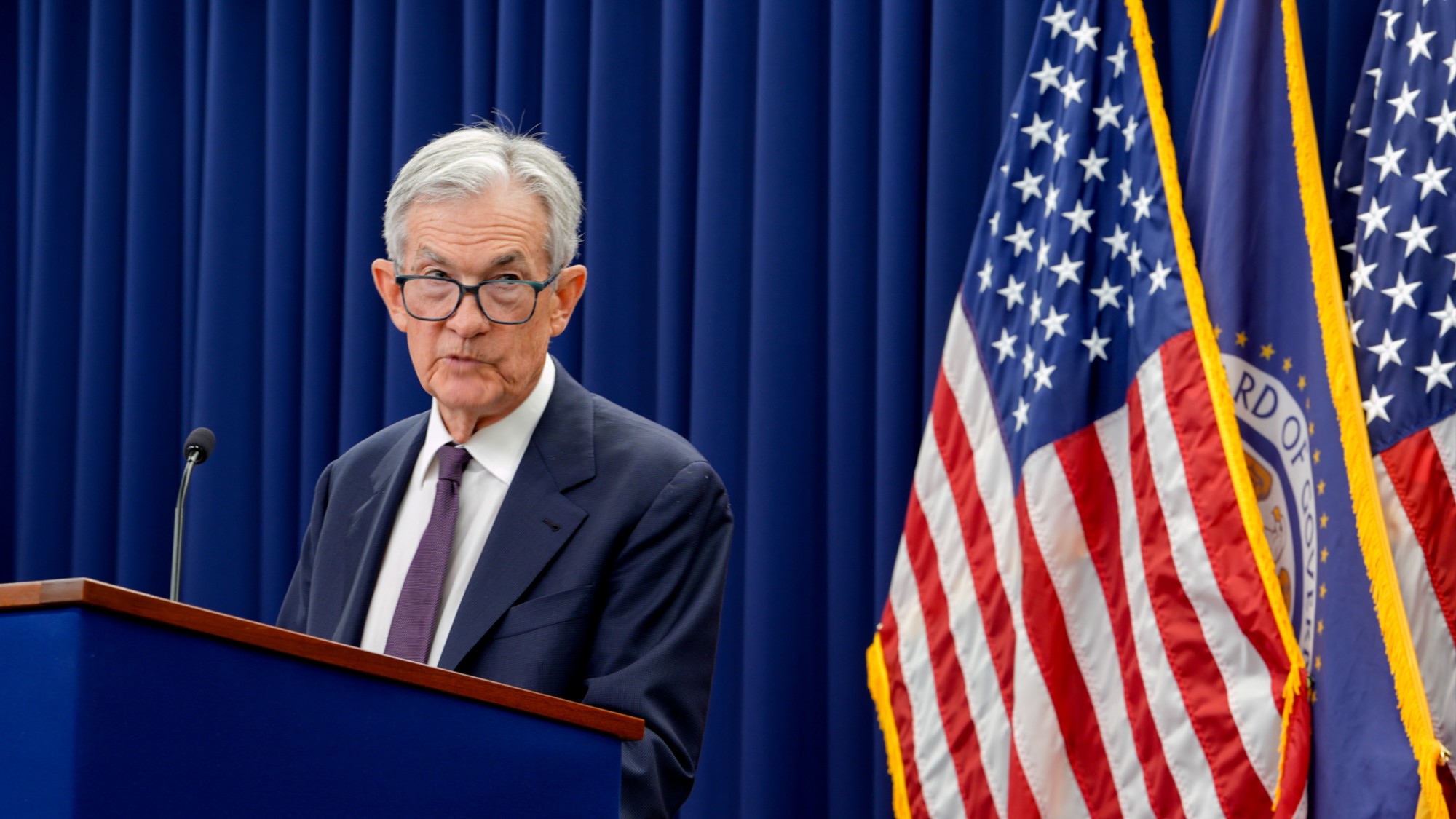Senate Democrats tee up $3.5 trillion budget blueprint for vote after the infrastructure bill passes


A free daily email with the biggest news stories of the day – and the best features from TheWeek.com
You are now subscribed
Your newsletter sign-up was successful
The Senate is expected to easily approve a $1 trillion bipartisan infrastructure bill Tuesday morning, then the chamber will begin considering a $3.5 trillion budget blueprint Senate Democrats released Monday. The budget blueprint, expected to pass with only Democratic votes, will unlock the reconciliation process, allowing the ambitious spending proposal to move out of the Senate with no Republican support.
The budget package envisions two years of free community college, universal pre-kindergarten, expanding Medicare to cover dental and vision, and multiple efforts to combat climate change and poverty. It would be paid for mostly through higher taxes on profitable corporations and wealthy households. Senate Budget Committee Chairman Bernie Sanders (I-Vt.) called the plan "the most consequential piece of legislation for working people, the elderly, the children, the sick, and the poor since FDR and the New Deal of the 1930s."
"The budget resolution will bake in the spending ceiling, as well as a rough framework for what can be included in the final social spending bill Democrats are trying to enact," Politico reports. "But the final product may well fall short of the $3.5 trillion allowed under the budget resolution," and moderate and more progressive Democrats will likely spend the next few weeks in tough negotiations about what provisions are included and how they will be financed.
The Week
Escape your echo chamber. Get the facts behind the news, plus analysis from multiple perspectives.

Sign up for The Week's Free Newsletters
From our morning news briefing to a weekly Good News Newsletter, get the best of The Week delivered directly to your inbox.
From our morning news briefing to a weekly Good News Newsletter, get the best of The Week delivered directly to your inbox.
The budget plan would not raise the debt ceiling, which should "ease action on that multitrillion-dollar plan, as well as the bipartisan infrastructure bill," Politico says. "But that calculated decision to procrastinate, as the Biden administration counts down toward a national default on U.S. debt, will make life substantially worse for Democrats this fall as they scramble for the votes to avert the cliff in time."
A free daily email with the biggest news stories of the day – and the best features from TheWeek.com
Peter has worked as a news and culture writer and editor at The Week since the site's launch in 2008. He covers politics, world affairs, religion and cultural currents. His journalism career began as a copy editor at a financial newswire and has included editorial positions at The New York Times Magazine, Facts on File, and Oregon State University.
-
 Can the UK take any more rain?
Can the UK take any more rain?Today’s Big Question An Atlantic jet stream is ‘stuck’ over British skies, leading to ‘biblical’ downpours and more than 40 consecutive days of rain in some areas
-
 The UK expands its Hong Kong visa scheme
The UK expands its Hong Kong visa schemeThe Explainer Around 26,000 additional arrivals expected in the UK as government widens eligibility in response to crackdown on rights in former colony
-
 One great cookbook: Joshua McFadden’s ‘Six Seasons of Pasta’
One great cookbook: Joshua McFadden’s ‘Six Seasons of Pasta’the week recommends The pasta you know and love. But ever so much better.
-
 Judge rejects California’s ICE mask ban, OKs ID law
Judge rejects California’s ICE mask ban, OKs ID lawSpeed Read Federal law enforcement agents can wear masks but must display clear identification
-
 Lawmakers say Epstein files implicate 6 more men
Lawmakers say Epstein files implicate 6 more menSpeed Read The Trump department apparently blacked out the names of several people who should have been identified
-
 Democrats push for ICE accountability
Democrats push for ICE accountabilityFeature U.S. citizens shot and violently detained by immigration agents testify at Capitol Hill hearing
-
 Japan’s Takaichi cements power with snap election win
Japan’s Takaichi cements power with snap election winSpeed Read President Donald Trump congratulated the conservative prime minister
-
 Will Peter Mandelson and Andrew testify to US Congress?
Will Peter Mandelson and Andrew testify to US Congress?Today's Big Question Could political pressure overcome legal obstacles and force either man to give evidence over their relationship with Jeffrey Epstein?
-
 Trump sues IRS for $10B over tax record leaks
Trump sues IRS for $10B over tax record leaksSpeed Read The president is claiming ‘reputational and financial harm’ from leaks of his tax information between 2018 and 2020
-
 Trump, Senate Democrats reach DHS funding deal
Trump, Senate Democrats reach DHS funding dealSpeed Read The deal will fund most of the government through September and the Department of Homeland Security for two weeks
-
 Fed holds rates steady, bucking Trump pressure
Fed holds rates steady, bucking Trump pressureSpeed Read The Federal Reserve voted to keep its benchmark interest rate unchanged
